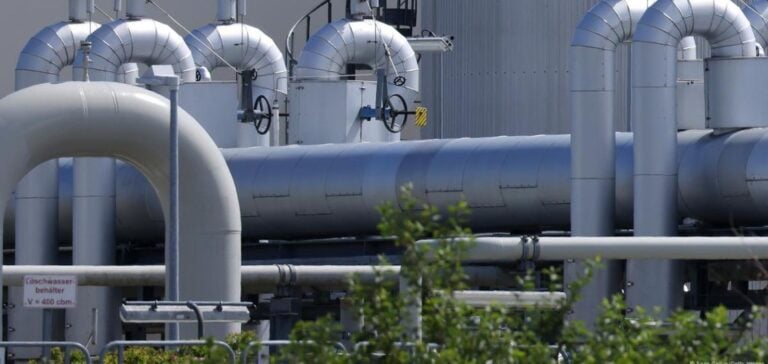Austria has been officially informed by Gazprom of the imminent halt in gas deliveries starting Saturday. This decision marks a significant shift in energy relations between the two nations, ending a partnership that began in 1968 with the signing of the first delivery contract between Austrian company OMV and the Soviet Union.
According to an OMV spokesperson, this announcement comes in the context of a dispute over an arbitration ruling issued on Wednesday. The ruling granted OMV the right to claim €230 million from Gazprom for past supply issues, particularly following Russia’s invasion of Ukraine and the reduction of gas flows in 2022 via the Nord Stream pipeline.
A Historical Dependence on Russian Gas
During the summer of 2024, Austria still relied on Russia for 90% of its gas, primarily delivered via Ukraine. This sudden halt ends nearly six decades of energy dependence, forcing the country to rapidly diversify its supply sources.
OMV, 31.5% owned by the Austrian state, had anticipated the deterioration in relations with Gazprom Export. The company had already reduced its reliance on Russian gas, increasing imports via pipelines from Germany and Italy.
Measures to Ensure Supply Security
Despite the supply cutoff, Environment and Energy Minister Leonore Gewessler assured on the platform X that the country’s energy security remains intact. She emphasized that storage facilities are full and alternative supply capacities are available. These measures aim to prevent an energy crisis similar to that of winter 2022, which destabilized several European countries.
The volumes affected by this halt are significant. OMV specified that the potentially impacted supply amounts to approximately 7,400 megawatt-hours per hour, equivalent to 5 terawatt-hours per month. This volume underscores the strategic importance of Russian gas to Austria’s energy system.
An Energy Conflict Amplified by the Ukraine War
Since the invasion of Ukraine, Russia has been repeatedly accused of using energy as a geopolitical leverage. The Austrian minister did not hesitate to label this decision as “another use of energy as a weapon.”
The cessation of deliveries also reflects a broader trend within the European Union. Several member states have drastically reduced their reliance on Russian gas, intensifying efforts to diversify sources, notably through liquefied natural gas (LNG) imports.
This interruption could mark a new phase in the reorganization of the European energy landscape. Austria, while ensuring its resilience, will likely need to intensify efforts for a sustainable and secure energy transition.






















